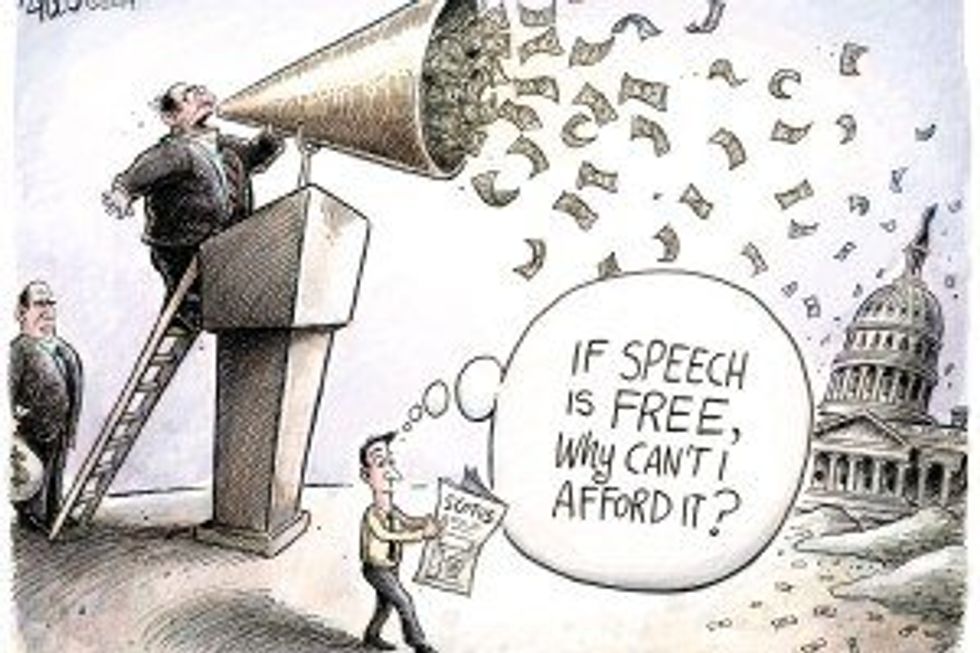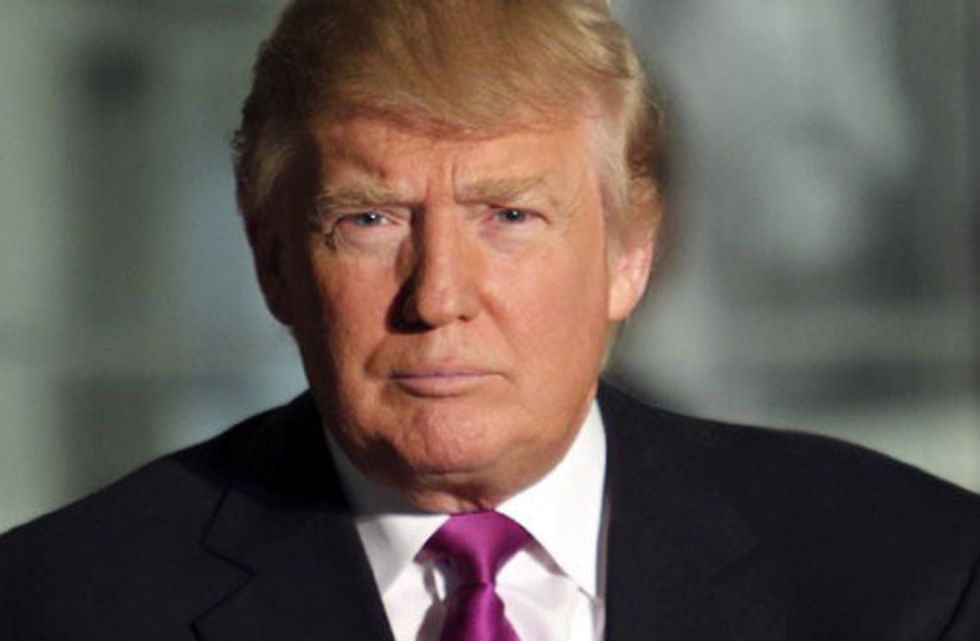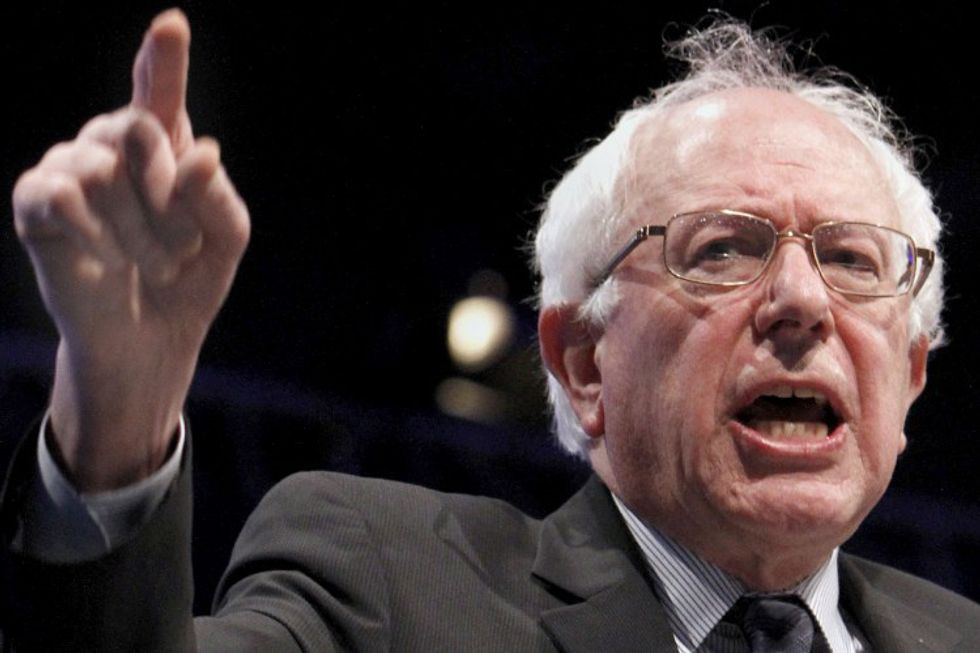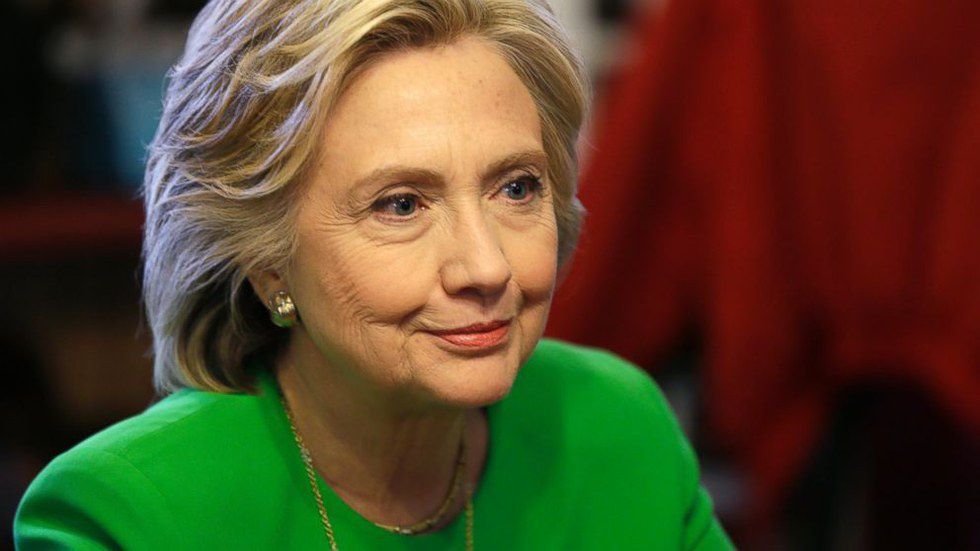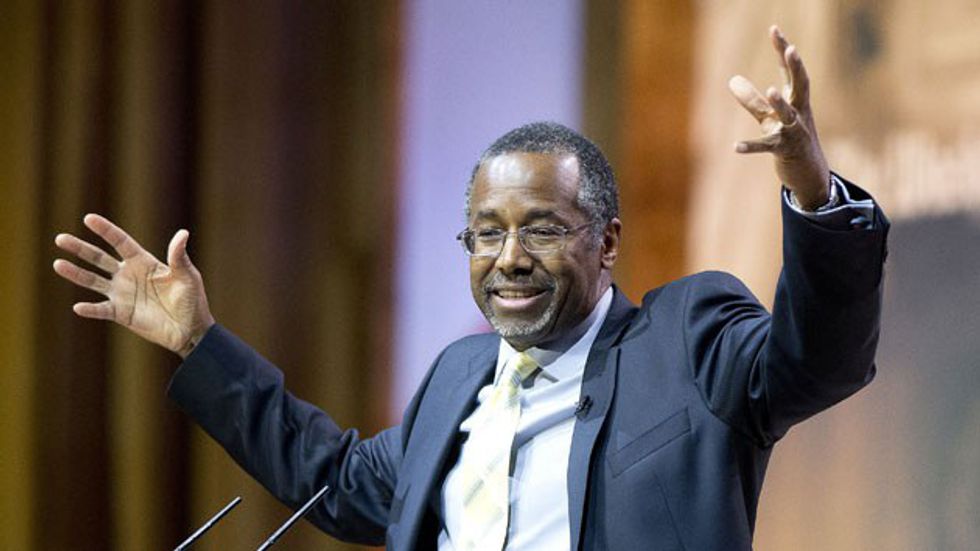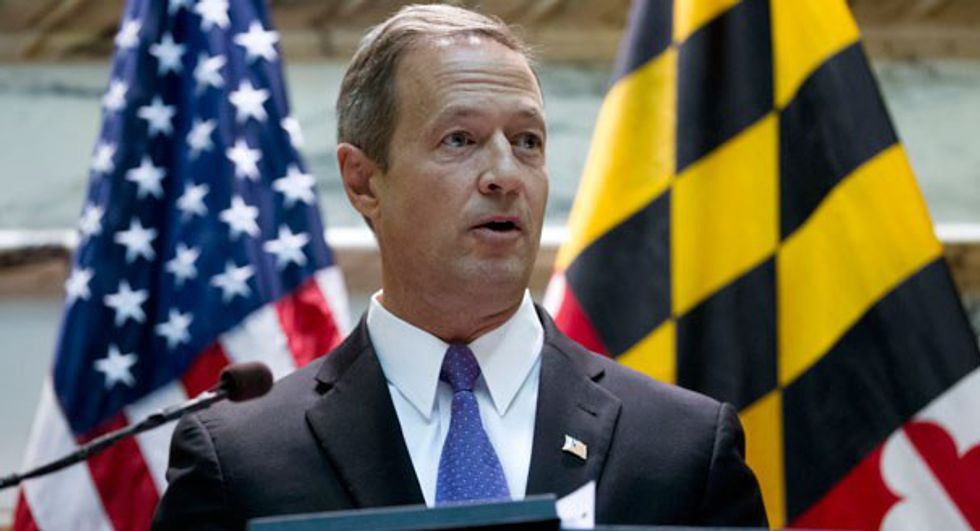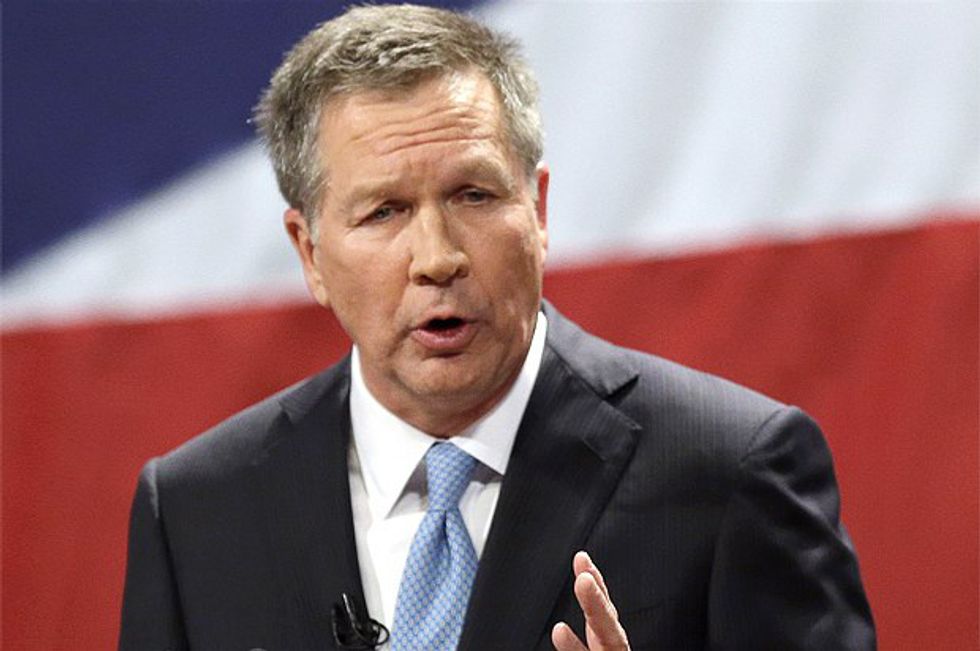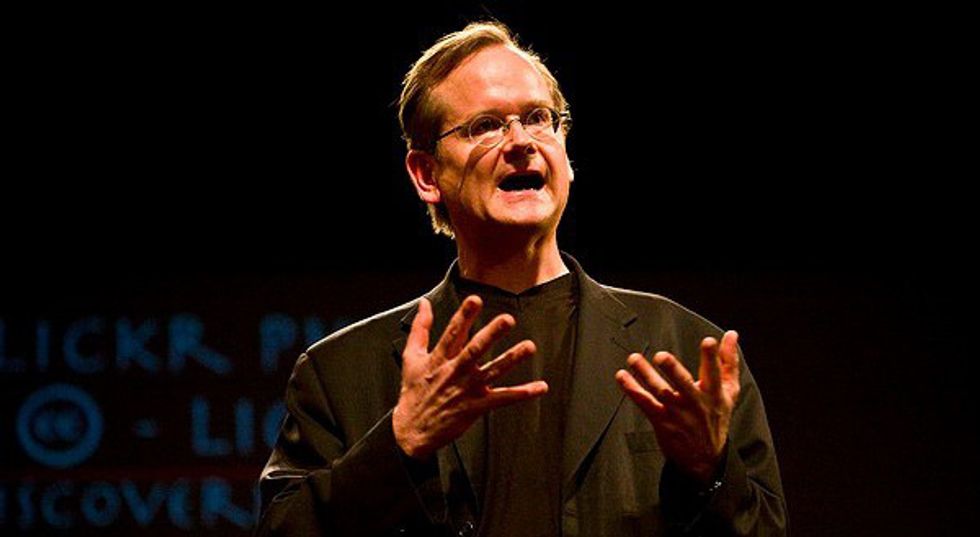"The more you give, the more you shall receive." It may sound like a nice little proverb about good karma and selflessness, but these words explain exactly how the American political system works right now. They more money you can give to your politician, the more favors you will receive in return. It's not altruism or karma- it's cold, hard calculation. More than ever, the influence of big money in politics is destroying any sense of democracy that may somehow remain in the hearts and minds of everyday Americans.
To examine how our current 2016 presidential candidates view the current status of campaign finance, let's take a look at what they have actually had to say on the matter...
DONALD TRUMP
In the first GOP presidential debate, "The Donald" announced:
I will tell you that our system is broken. I give to many people. I give to everybody. When they call I give, and you know what? When I need something from them, two years, three years later, I call, and they are there for me.
Three words: Quid. Pro. Quo. If nothing else, we do have to thank Donald for making it so evidently clear. This isn't some left-winger saying money corrupts, let's all hit the hash pipe. This isn't some hack demagogue trying to throw mud at an opponent and earn himself a few cheap political points. This is a wealthy businessman saying exactly how it works in very concrete terms. "I give," he says, and when he gives, he expects a return. And he gets it.
BERNIE SANDERS
Speaking in Washington last month about legislation that he will introduce in the Senate to provide public funding for elections, Sanders stated:
The need for real campaign finance reform is not a progressive issue. It is not a conservative issue. It is an American issue. Let us be frank, let us be honest, the current political campaign finance system is corrupt and amounts to legalized bribery. Every member of the Senate, every member of the House, knows how much time candidates spend on the telephone dialing for dollars. Republicans, Democrats, everybody.
There's no question that Bernie Sanders is and has for many years been one of the most prolific speakers on the important issue of campaign finance reform. He is one of the few, if not only, politicians who can (honestly) say that he has fought against the corrosive influence of big money in politics since well before it became a mainstream electoral issue.
While being interviewed by the blog website "Governing Under the Influence," Fiorina explained:
There’s no question that special interests of all kinds have a lot of influence in politics. What I find interesting is that every time we start talking about campaign finance reform of any kind, politicians of both parties start carving out exceptions... Let’s be honest, both sides do it. Here’s my formula here: we’ve got to have a level playing field so either everyone gets to play or nobody gets to play.
Democrats whine that the Koch brothers are taking over the American government. Republicans cry about the radical agenda of George Soros. While the parties can bicker over which entities benefit most from the presence of big money in politics, no one can deny that it benefits the biggest donors at the expense of citizens who can't afford to spend thousands of dollars on themselves, let alone their politicians. A level playing field is one of the fundamental principles of democracy, although the playing field is anything but level right now.
In a scripted speech delivered earlier this month designed to stem the increasing flow of voters streaming to her populist opponent, Clinton announced:
We have to end the flood of secret, unaccountable money that is distorting our elections, corrupting our political system, and drowning out the voices of too many everyday Americans. Our democracy should be about expanding the franchise, not charging an entrance fee. It starts with overturning the Supreme Court’s Citizens United decision, and continues with structural reform to our campaign finance system so there’s real sunshine and increased participation.
It is evident that issue of big money in politics is one that Hillary's pollsters have informed her must be addressed. The rise of political extremists in both parties is evidence of voter revulsion at the status quo. If real reforms are not enacted, voters are demonstrating that they are very willing to cut off their nose to spite their face.
BEN CARSON
In his book, America the Beautiful, Carson diagnoses politicians with a case of reelection-itis.
In the scenario originally envisioned by the founding fathers, dedicated citizens served in Congress for a few years and then returned to their original walks of life. But because many in Congress want to keep returning term after term, they need to constantly campaign and seek funding, much of which is obtained from special interest groups. Needless to say, money from these groups is not given without strings attached.
He may be as medically gifted as he is politically naïve, but even Dr. Carson understands the corrosive influence of legalized bribery in campaign finances.
MARTIN O'MALLEY
On his campaign website, O'Malley lays out his vision for campaign finance reform:
Restoring our economy requires us to revitalize our democracy. We must return to a government of, by, and for the people—one that builds an economy that works for everyone and ensures voters’ voices are heard. While fixing the Citizens United decision is important, we can’t afford to wait for a Constitutional amendment to solve the problem of out-of-control money in our political system. We should start by embracing citizen-funded elections, to reduce the outsized influence of special interests and the very wealthy in our politics. Small donors should have their contributions matched by six-to-one or more, and be rewarded through a refundable tax credit that encourages more people to give and participate. And we should make it easier, not harder, to vote – by modernizing registration, restoring the Voting Rights Act, and tearing down barriers like ID requirements that make it difficult for people to exercise their most fundamental right.
O'Malley has put a lot of work into raising his name recognition in Democratic circles nationwide. Still, he has yet to gain much of any traction and remains under 3% in every major poll. His messaging shows that he has put a lot into understanding the reforms necessary in campaign finance. It will be interesting to see if the (eventual) Democratic debates help O'Malley rise a little in the polls.
JOHN KASICH
Ohio Governor John Kasich discussed the issue of campaign finance when he first announced that he was entering the crowded presidential field, admitting:
A handful of billionaires should not determine who should be president … I think the system is not working, but I’ve got to play the hand I was dealt.
Kasich makes a great point- financially, politicians do have to play the hand that they are dealt. Even with the most altruistic of intentions, politicians have next to no chance of winning an election without receiving the massive amount of funds necessary to be competitive. The hand currently being dealt to politicians requires them to spend the majority of their time getting on their knees in front of major donors. That is why it is so direly important that we the people work with our Representatives to find a way to change that hand.
LAWRENCE LESSI
Lawrence Lessig, Harvard professor, West Wing character and candidate to be president for a day, told the Libertarian magazine Reason:
This system is a system of crony capitalism. And it's a crony-capitalist system because the only way members of Congress can get elected is if they raise money from large donors, and those large donors are expecting something in return. The Cato Institute says the United States government spends a hundred billion dollars a year on corporate welfare. Why are they spending a hundred billion dollars on corporate welfare? They're spending a hundred billion dollars on corporate welfare because this is the essential return to keep them interested in being in the business.
$100 billion per year on corporate welfare- that's a pretty nice thank you gift for those campaign contributions. Campaign finance reform isn't anti-capitalism, it's anti-crony capitalism. And crony capitalism is a major player in giving capitalism such a bad name.
Many of the individuals running in the 2016 presidential campaign have articulated an understanding of the disaster that is our current system of campaign financing. The real questions we have to ask ourselves now include who is going to actually seek legitimate change? And how will they go about seeking reform?
**This article is the first in a three-part installment dealing with the current campaign finance system and detailing current efforts for reforming, including legislation currently on the books such as the Government by the People Act introduced by Stevenson University's representative in the U.S. House of Representatives, Congressman John Sarbanes (D-MD).



